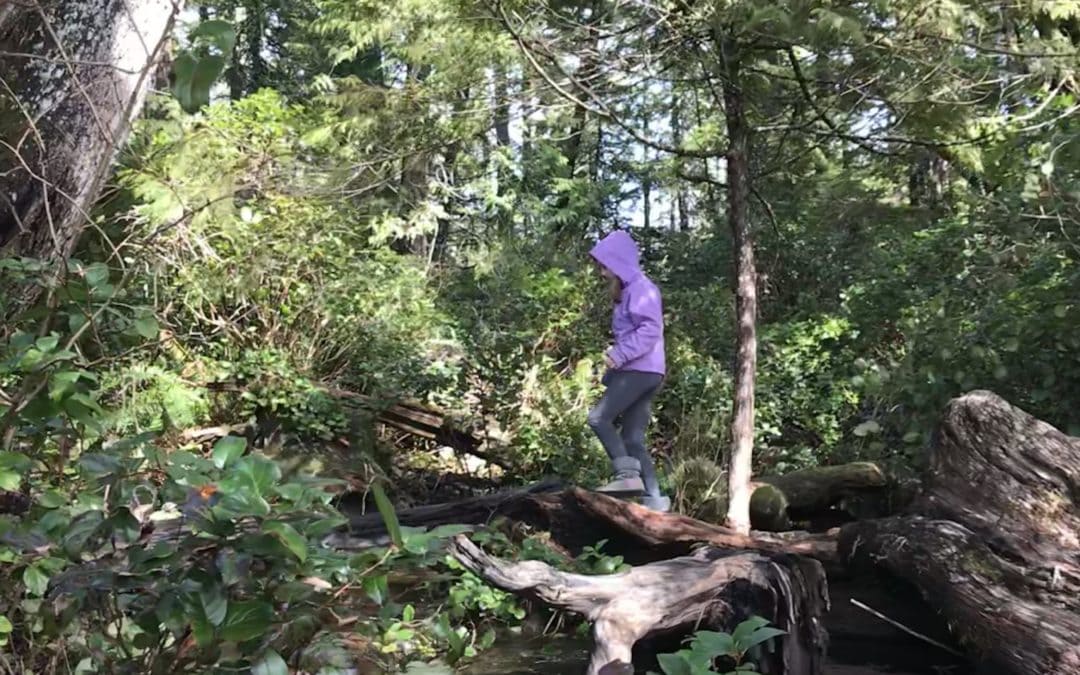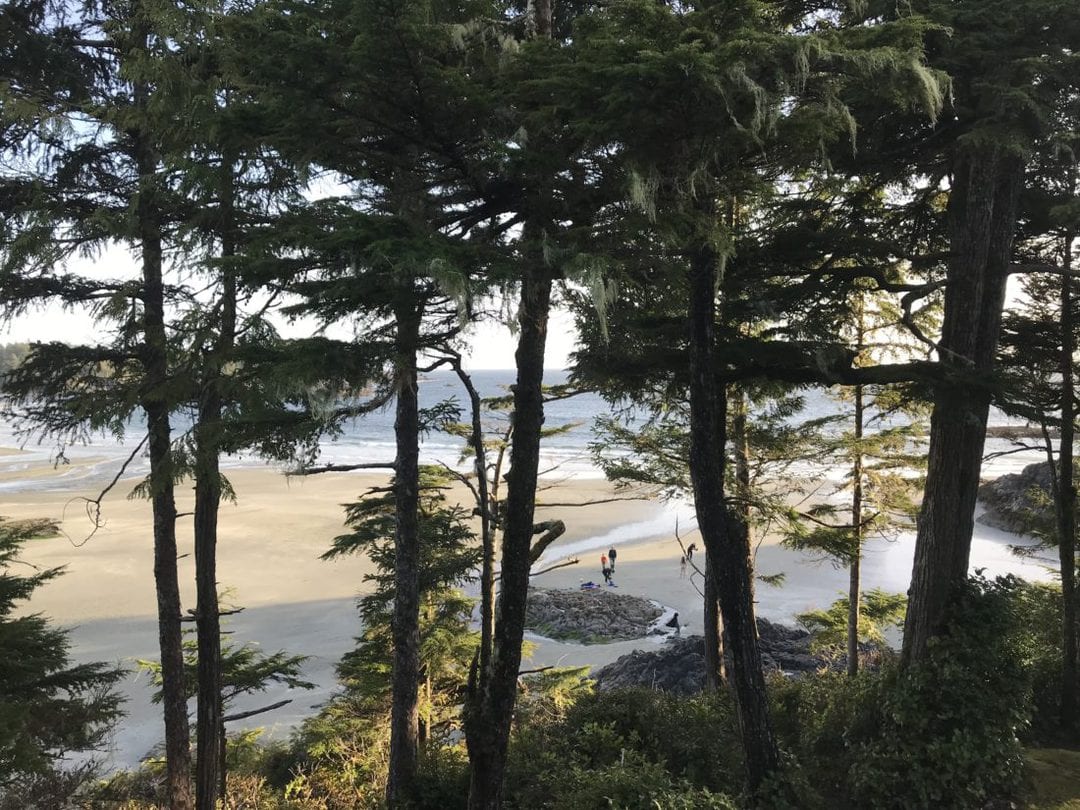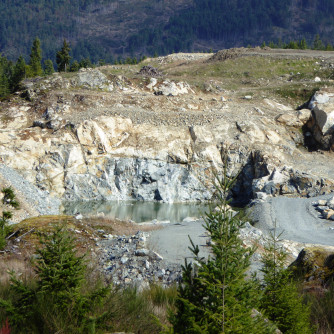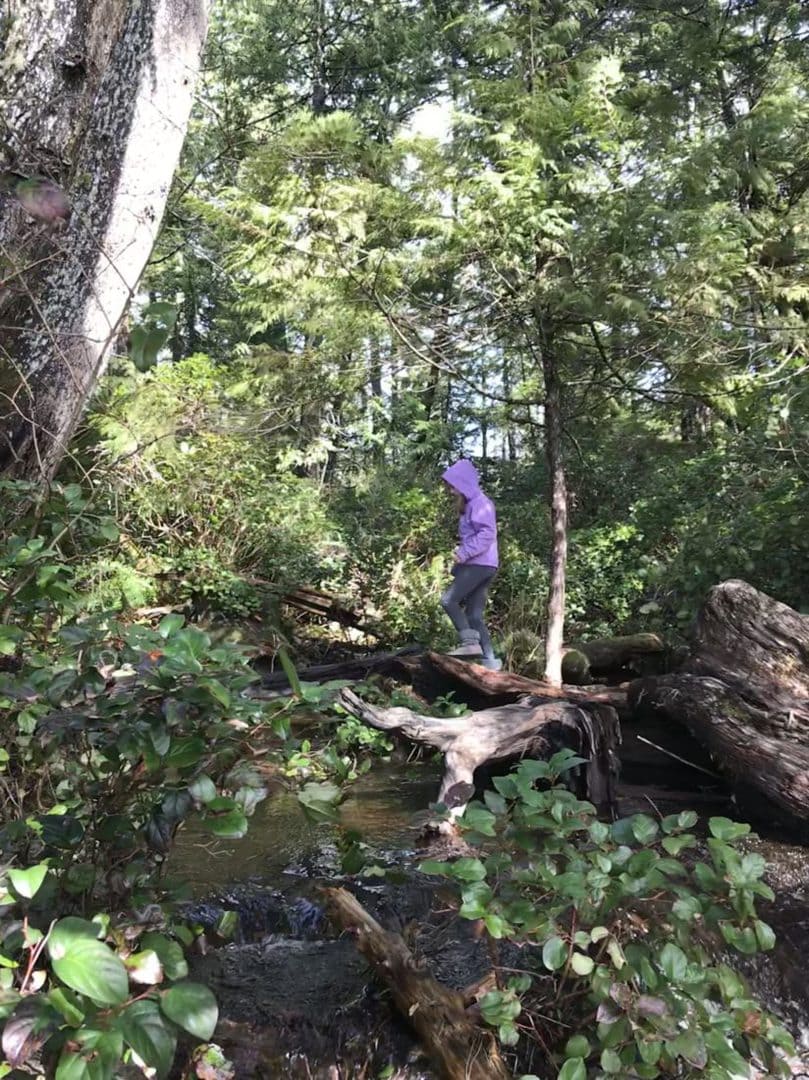When I’m asked about what drew me into politics, I tell the story of Easter weekend, 2013.
I could never have imagined six years ago the path my life was going to take as a result of a permit issued by the provincial government. Nor could I have imagined that what I was to learn in our efforts to protect Shawnigan’s drinking water would give insight into the weaknesses and failures of a provincial regime, but also into the solutions that we need to embrace if we are to build the resilient communities that we are going to need as the impacts from climate change continue to mount.
We are very much in need of a new vision for the 21st-century that moves us towards creating the resilient communities that will be necessary in the era of increasing impacts from climate change.
Communities need to know that they have sustainable, safe water supplies, whether surface water or aquifers – and they need the tools to be able to protect their watersheds. Ultimately, we need to be moving toward a watershed co-governance model, like the one being piloted in the Nicola Valley, where Indigenous Nations work with local governments to make long-term decisions focused on water sustainability. Here in Cowichan, the Cowichan Watershed Board is the foundation upon which this can be built.
Communities and local governments also need more say over what’s happening on the land over which they have jurisdiction – particularly in regional districts, where the tools for decision-making are limited.
We need to place an increasing emphasis on local economies and supporting small businesses, which are the engines of a healthy, sustainable economy. And for energy resilience, we need to focus on local production of renewable energy that limits environmental impacts, like we see with solar project in the T’sou-ke Nation.
Ultimately, the citizens of the province should feel assured that government is here to protect them, and their communities. As I came to realize that a provincial government didn’t seem to be making decisions that put the well-being of the Shawnigan community first, I found myself involved in years of effort to change this.
Back to Easter, 2013. I was teaching at the time, and we had planned a family trip to Tofino for the long weekend. We were looking forward to walking on the beaches and in the forests, having leisurely mornings drinking coffee, playing board games with the kids in the evenings. We’d found a lovely house to rent for the weekend, and we were excited to be getting away.
And we did all those things, but what stands out in my memory the most from that weekend was reading and re-reading the draft permit for a contaminated landfill in Shawnigan’s watershed that had been issued on the Thursday afternoon, just hours before everything closed down for the long weekend.
All weekend, Blaise and I pored over the permit, wondering how it was possible that a government would even consider authorizing a contaminated soil landfill in a community’s drinking watershed. The list of allowable contaminants was devastating; dioxins, hydrocarbons, metals, chloride, glycols, benzene, toluene. The list went on an on. The notion that these would be destined for our drinking watershed was inconceivable.
It was a significant internal shift for me. All my life, I’d worked with the assumption that government operates with the well-being of citizens as a primary driver. I may not have agreed with policies or decisions, but I’d never personally experienced a situation where it seemed that a government was willing to put a community’s drinking water at risk.
After that Easter weekend in 2013, I immediately got involved with the Shawnigan community’s efforts to stop the permit, submitting a response to MoE, organizing letter writing events, working with the Shawnigan Residents Association to help organize rallies, meetings, fundraisers, and ultimately, protests – and always focusing on the importance of building a strong, connected, resilient community. As the process unfolded – the final permit issued, the appeals brought to the Environmental Appeal Board, the trucks starting to roll, the protests, the myriad of court cases and hearings – I became more and more deeply involved, and I began to document what was happening on my website.
My first post related to our campaign to Save Shawnigan Water was November 7th, 2014 – a letter published in the Times-Colonist. Between then and February 2017, when the permit was revoked, I wrote over 50 posts detailing the developments in Shawnigan. In addition, there were videos, including Save Shawnigan Water, and a relentless stream of media stories, including a W5 episode, Trouble in Paradise.
In the fall of 2014, I successfully ran to represent Shawnigan in the CVRD election. At the end of December, I resigned from my teaching job and committed myself full-time to the Shawnigan community, and to the efforts to see the permit revoked.
As we dug deeper and deeper, I began to realize that what was happening in Shawnigan was not an isolated instance of poor decision-making. What was happening was a result of government policies and approaches that meant that these outcomes could – and were – happening all over the province.
I’d reflected on the link between the tragedy of the Mount Polley mining disaster and the potential for catastrophe in Shawnigan long before I’d heard of Professional Reliance, but I learned over the next several years that this approach, which greatly diminished government oversight over resource projects, was contributing to a wide range of worrying outcomes across BC. Mark Haddock, a lawyer with UVic’s Environmental Law Centre, wrote a 2015 report on this topic, Professional Reliance and Environmental Regulation in British Columbia, in which he stated,
We conclude that much of BC’s deregulation goes too far in handing over what are essentially matters of public interest to those employed by industry. Proponents should not be decision makers for matters involving the weighing and balancing of multiple, often competing, environmental and societal values. This raises irresolvable conflicts of interest and a lack of democratic accountability for many resource management decisions.
And so, as a provincial election loomed, I began to consider running for MLA, with the intention of trying to do what I could to solve the systemic issues identified by Mark Haddock, the symptoms of which were playing out in real time in Shawnigan Lake. As a community, we began to speak about how we wanted to do what we could to ensure that no other community in BC would have to go through what we were enduring. We were seeing a terrible example of Professional Reliance gone too far, where the engineers – Active Earth – ostensibly hired by the proponents, turned out to actually be secret profit-sharing partners in the contaminated landfill. This was summarized in Justice Sewell’s 2017 BC Supreme Court Decision:

Soon after Sewell’s court decision, in February 2017, the Ministry of Environment revoked the permit. As a community, we were ecstatic in our relief that we’d been successful after so many years of efforts. (Read all about it here: Environment Minister Suspends Permit for Leaky Landfill in Shawnigan Lake.)
Three months later, I was elected MLA for Cowichan Valley, and found myself in the extraordinary circumstances of being one of a three-person caucus that held the balance of power in BC. I also found myself at the negotiating table as we navigated towards a decision about which party we would ultimately support.
Those negotiations resulted in the Confidence and Supply Agreement between our caucus and the NDP, where we put our priorities on the table. And in that agreement was the issue that brought me into politics, and a path forward:
Revitalize the Environmental Assessment process in BC and review and address failures in the professional reliance model in BC so that British Columbians’ faith in resource development can be restored.
The work on these initiatives began soon after the new government cabinet was sworn in, and as the Green caucus lead on these files, I was engaged from the beginning.
First, Mark Haddock was brought in to write a report on Professional Reliance, which was presented to government in May, 2018. The 135-page repot contains 121 recommendations for improving professional reliance in BC. Haddock states in his executive summary:
The intent of the recommendations in this review is to strengthen professional reliance by increasing transparency and accountability, ensuring the appropriate use of QPs, and implementing best practices, thereby resulting in improved outcomes from natural resource decisions.
Next, Bill 49 was brought forward and passed in the fall of 2018, implementing Haddock’s first two recommendations,
- That government establish an Office of Professional Regulation and Oversight that would have authority similar to that found in the Health Professions Act. The Office would be an agent of government, independent from the natural resource sector ministries, and focused on professional governance issues. Ultimately, the intent of the Office would be to oversee professional legislation, develop best practices for governance, and regulate professional organizations as needed.
- That government standardize 10 elements of professional governance through umbrella legislation, including a new power to regulate firms, improve council authority to pass certain bylaws, require continuing professional development, clarify public interest duties, and address codes of ethics, reporting duties and whistleblower protection.
The various ministries responsible for natural resources continue to work to implement the rest of Haddock’s recommendations, either through legislation or regulation. Over time, my hope and expectation is that we will rebuild public trust in natural resource decisions being made in this province, by restoring a level of oversight and integrity in the government’s role.
My hope also remains that other communities will indeed be spared the stress, the pain, the costs, and the outrage that we experience in Shawnigan, and I continue to work on the systemic issues that create these conditions. However, I am saddened and alarmed by how many people continue to reach out to me from all over the province with stories that sold hauntingly familiar to what happened in Shawnigan.
A proposed contaminated landfill in a quarry in Campbell River that shares several similar issues that we saw in Shawnigan.
Plans for logging in a drinking watershed in Ymir, a small town in the Kootenays, that could undermine the capacity for retention of the surface water necessary for the community’s drinking water.
Dumping of soil near Dawson Creek that is raising concerns for residents.
In the Cowichan Valley, concerns about logging above Youbou that could pose a threat to water quality and the town itself.
And just this last week, there’s been an outcry over the sale of cutblocks in some of Vancouver Island’s last old growth – logging that could have negative impacts to the growing tourist economy of Port Renfrew, which has branded itself the Tall Tree Capital of Canada.
And here in Shawnigan, another Easter weekend where we are left wondering if the government will choose to leave the soil in our drinking watershed, when we as a community have been clear, from the very beginning, that it not a risk that we accept for ourselves, or for our grandchildren and their grandchildren: Tentative plans call for contaminated soil to stay at contentious Shawnigan Lake site.
In the nearly two years since I was elected MLA, and in addition to my work on systemic issues like professional reliance, I have continued to be relentless in my efforts to advocate for Shawnigan and its watershed. I have worked closely with the Shawnigan Research Group, and attended several of their meetings with Ministry of Environment staff, including a four-hour meeting last week, on April 16th. I have discussed the matter at length with the Minister of Environment, with the Deputy Minister, and with ministry staff – reiterating each time that our efforts in Shawnigan were always rooted in evidence and reason, and that literally the foundations of the permit and the landfill will never be trusted by our community. And I have been abundantly clear – our efforts will be sustained until the soil, which never should have been deposited at this site, is removed.
Some have asked me, “why not take down the government?” Ultimately, as a caucus we could exercise this power over any issue that we are disappointed with by introducing a motion of non-confidence, and triggering an election. And ultimately, as an opposition party, we have chosen to work hard to push for good policies and legislation that we think are needed for BC – and chosen not to interrupt positive steps being taken by the government on issues that affect people’s lives across the province, including housing, social services, help for those with addictions, education, and health care. In addition to the Environmental Assessment and Professional Reliance legislation, we have been integral in seeing that union and corporate donations have been banned, that lobbying reforms were introduced, that this government has taken steps to protect wild salmon, and that Clean BC, an economic plan for reducing BC’s emissions, was introduced and funded. As a three-person caucus, we have been able to move many important issues forward, in our ridings and across the province. In Cowichan, I have worked hard to make progress on a new weir for the Cowichan River, and I’ve worked with the community on several pressing social issues, including the over-representation of Indigenous children in government care, the need for treatment and supportive housing for those living with addictions, and the need for affordable and attainable housing in our region. As an opposition caucus, we have been disappointed with some of the significant decisions government has made, in particular the decision to continue with Site C, and the recent legislation (which we voted against 14 times) to give a $6 billion subsidy to the LNG industry. We do not support these decisions, and we don’t agree with all the policies and directions this government has chosen to take. We would have made very different ones if we were in government. As a caucus we’ve chosen to continue to work hard on the myriad of many other serious issues that need attention in our province, and to offer a different vision for the future of British Columbia.
There have been some positive steps taken by this government, but if we are to truly change the stories and the outcomes across this province, we need to focus on creating a future that is built on ensuring that we are doing all we can to foster resilient communities. In an era of rapidly increasing climate change impacts, this is more important than it’s ever been before.






